
Our Story
Faiths for Climate Justice: Our Journey
On Sunday, 9 June 2024, less than a month shy of the UK general election, Faith for the Climate held a picnic. No ordinary picnic – it was a picnic with a purpose. Held in the churchyard of St Johns’ Church in Waterloo, London, it had mouth-wateringly delicious, plant-based food brought and shared by members of the congregation and guests of other faiths.
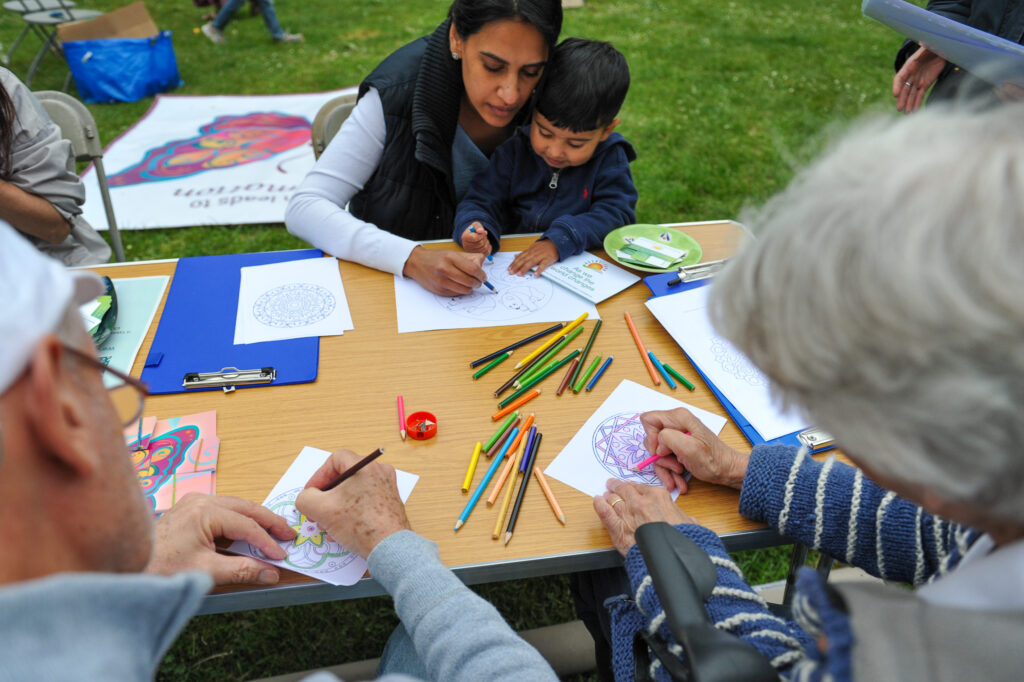
There were stalls for swapping clothes, plants, cupcakes, and even bank accounts, hosted by different faith groups:
- The ecumenical Christian JustMoney movement
- The Ahmadiyya Muslim Community
- MTO Shahmaghsoudi (a Sufi/mystical Islamic group originating from Iran)
- Islamic Relief UK, and
- The Yoko Forum (a Japanese religious group).
There was face-painting by Roman Catholic volunteers, a game of recycling rounders led by an Anglican priest, and colouring activities by the Brahma Kumaris (a member organisation of the Hindu Forum of Britain).
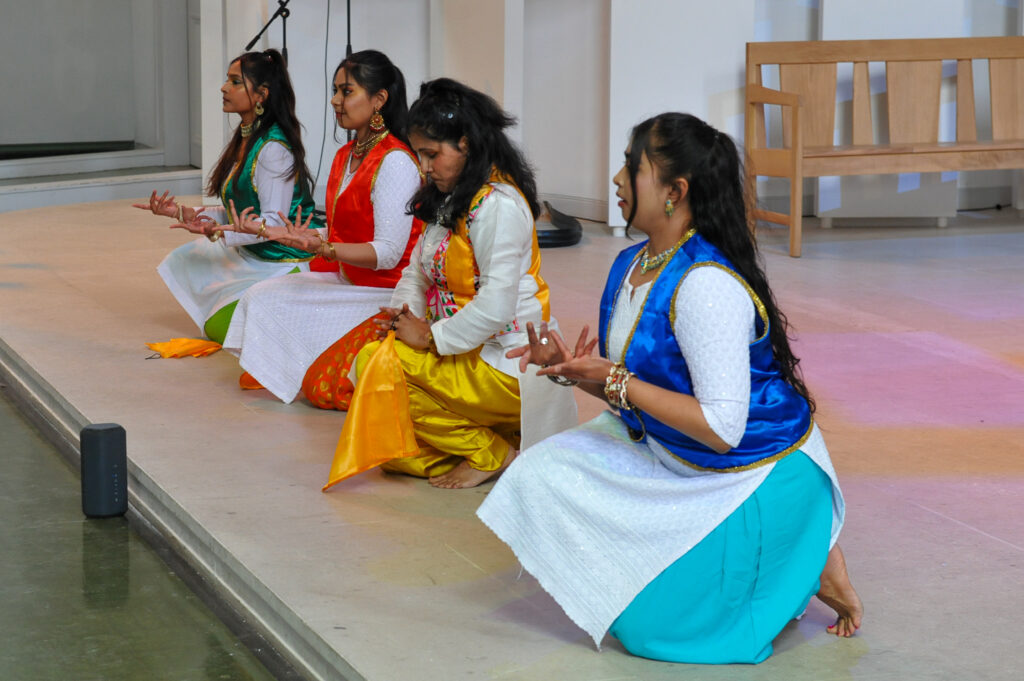
After the food and games, we gathered indoors for music and dance performances by Habiba Ahmad (a Muslim singer-songwriter), Jess Hall (a Christian singer-songwriter), Holy Swans (a South Asian Hindu dance group), and MTO Zendeh Delan (a Sufi ensemble).
Afterwards, leaders and representatives from different faith traditions – Bahai, Buddhist, Christian, Jewish, Muslim and Quaker – read out a joint pledge, asking the incoming government to swap empty promises for real action, and ensure that its policies on climate and nature would be truly just and fair. Later, people mingled and looked at a special photography exhibition, put together by Christian Aid and the Make Polluters Pay coalition, calling for more democratic and just solutions for climate breakdown in different parts of the world.
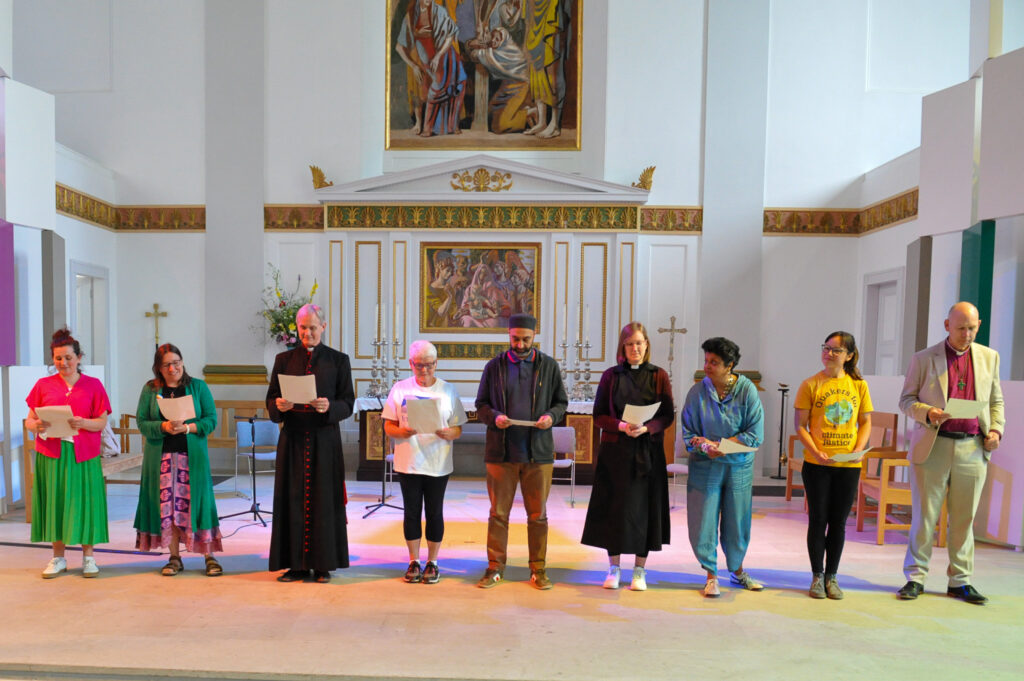
This day was Faith for the Climate’s family-friendly, election-focused contribution to the Great Big Green Week (8-16 June), helmed by The Climate Coalition. The theme for 2024 was ‘let’s swap together for good’.
At the end of the picnic, five-year-old Aadi Thakrar – whose father, Avnish, is the national coordinator of Hindu Climate Action – said, ‘I can’t wait to come again next year!’ High praise indeed, made more poignant because we held this picnic at a time when many interfaith networks were expressing grave challenges in bringing people together amidst the worsening situation in Israel-Palestine. How were we able to gather people of such diverse backgrounds in such a meaningful yet warm and enjoyable occasion? And where do we go from here?
From Christian pilgrimage to interfaith initiative
Faith for the Climate had its beginnings when our co-founder and chair, Canon Giles Goddard (who is also vicar of St John’s Waterloo), was part of the ecumenical Christian Pilgrimage to Paris ahead of the historic UN climate talks, COP21.
The goodwill and momentum that sprang from the historic Paris Agreement convinced Giles that there was appetite for greater collaboration amongst people of all faiths in the UK with a focus on climate change.
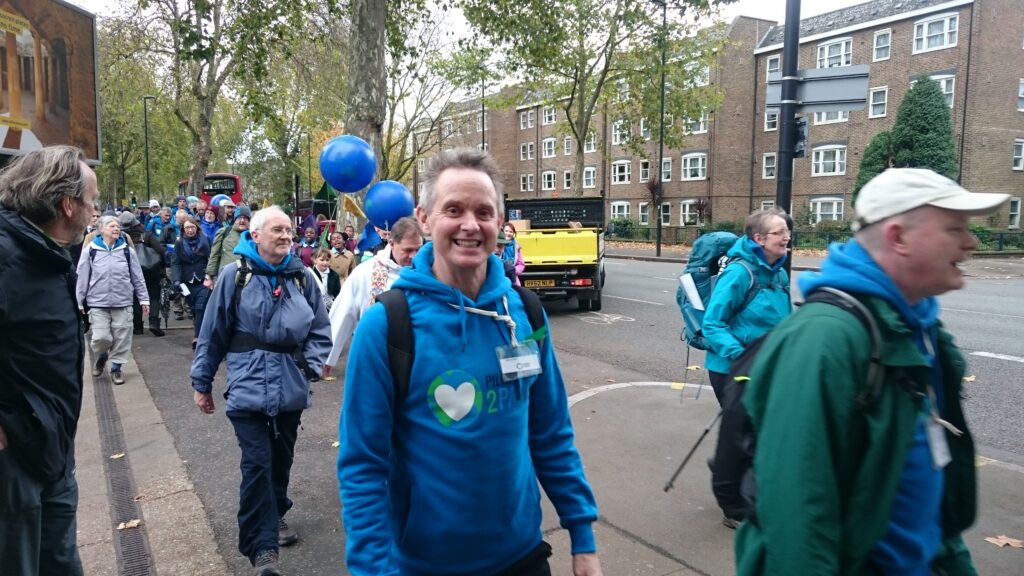
Working with leaders and representatives from other Christian denominations and other faiths, Giles coordinated our first interfaith symposium at St John’s in 2016. This was no mean feat, considering the political shocks that occurred later that same year – Brexit in the UK and the election of Donald Trump as US president.
Faith for the Climate persevered. Alongside our secular partners, Giles and the other faith leaders and organisers that formed our nascent network anticipated the need for a convening space for people of different backgrounds working towards a common purpose. In 2018, Faith for the Climate received seed funding from the US-based Greenfaith and Religions for Peace UK.
With this support, we focused on building the capacities of faith communities that were under-represented in the wider environmental and interfaith sectors.
From crisis to opportunity
From its inception, Faith for the Climate adopted an opt-in and informal definition of membership. Anyone in the UK of any faith background wanting to take more ambitious action on the climate and nature crisis effectively becomes a member by subscribing to our e-news. This focused-yet-flexible approach means that our 600-plus ‘members’ include individuals, local communities, and national umbrella faith bodies.
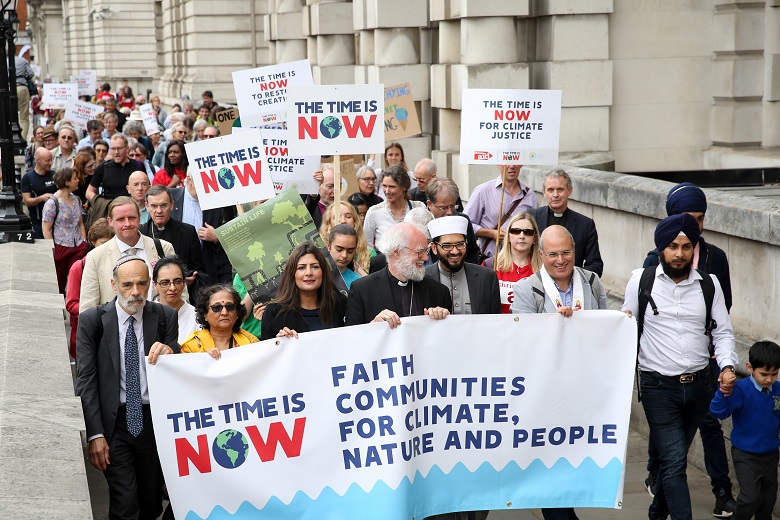
This is why in 2019, for example, we were able to support The Time Is Now – the UK’s biggest mass lobby of Parliament on climate change, organised by The Climate Coalition – and the non-violent direct action of faith-inspired members of Extinction Rebellion. This is also why, despite the pandemic-related lockdowns imposed in 2020, we smoothly transitioned into an online secretariat role for faith groups focusing on the UN climate talks, COP26, to be held in Glasgow in 2021. This informal COP-focused coalition became known as Make COP Count, to be distinguished from Faith for the Climate’s non-COP26-related work.
This approach allowed us to sharpen our own understanding of faith-inspired climate action, within and beyond UN negotiations. To us, climate change is not simply an environmental problem that can be solved with technical or scientific fixes, necessary as these may be. Rather, climate change has become a crisis because it is caused by the inequalities and injustices associated with colonialist and capitalist extraction and exploitation. It therefore requires social and political solutions rooted in a moral and spiritual vision of justice that connects humanity with the more-than-human and the beyond-human. This fundamental belief is consonant with the principle of climate justice – those most responsible for the climate crisis bear the biggest responsibility to solve it because those least responsible are suffering its worst impacts.
This understanding was reflected in our decision to prioritise two key demands from the UK government as COP26 host:
- Ending subsidies for fossil fuels
- Paying a fair and proportionate share of money for the irreversible loss and damage caused by climate breakdown.
Our “A-ha!” moment
Asking for an end to fossil fuel subsidies was the easy part – that discussion was already in the ether of climate and environmental activism. Addressing “loss and damage” was less straightforward. When we started working on COP26, most of us in Make COP Count had not even heard of this phrase, let alone understand that it was in the Paris Agreement. But this is where Make COP Count – and, by extension, Faith for the Climate – came into its own.
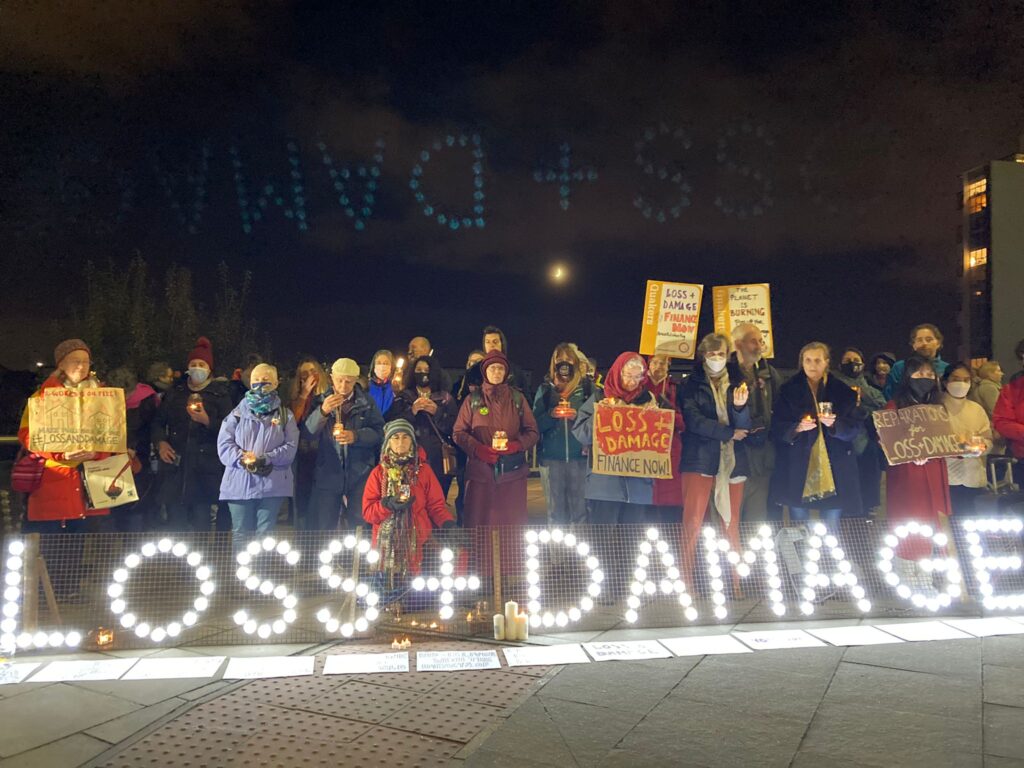
Quakers in Britain, one of our early members and supporters, were already doing exploratory work on this issue and brought it to one of the early Make COP Count discussions. With their help, we learnt that “loss and damage” is a general term used in UN climate negotiations. It describes the consequences of climate change that go beyond what people can adapt to – for example, the loss of coastal religious or cultural landmarks because of rising sea levels, or the destruction of homes and deaths during extreme floods.
For some of us, the links between loss and damage, climate injustice, and the need for a moral and spiritual intervention from people of faith quickly became obvious. Soon, a concept that was barely understood by the British public became the priority issue for the faith groups in Make COP Count and Faith for the Climate, spanning Christians, Muslims, Jews, Hindus, Buddhists, Sikhs, Bahais, Pagans, and Quakers.
The proof of the pudding, as they say, was in the eating. At COP26, UK faith groups showed in up force, bringing justice-focused messages of solidarity which supported and amplified the demands brought by delegates from the majority world. As one senior activist in the World Council of Churches – a COP veteran – remarked in one of our follow-up webinars after the conference, the level of engagement and quality of messaging from faith groups at COP26 was unprecedented. In the end, “loss and damage” became the issue that would not disappear and a fund for it was officially announced at COP27.
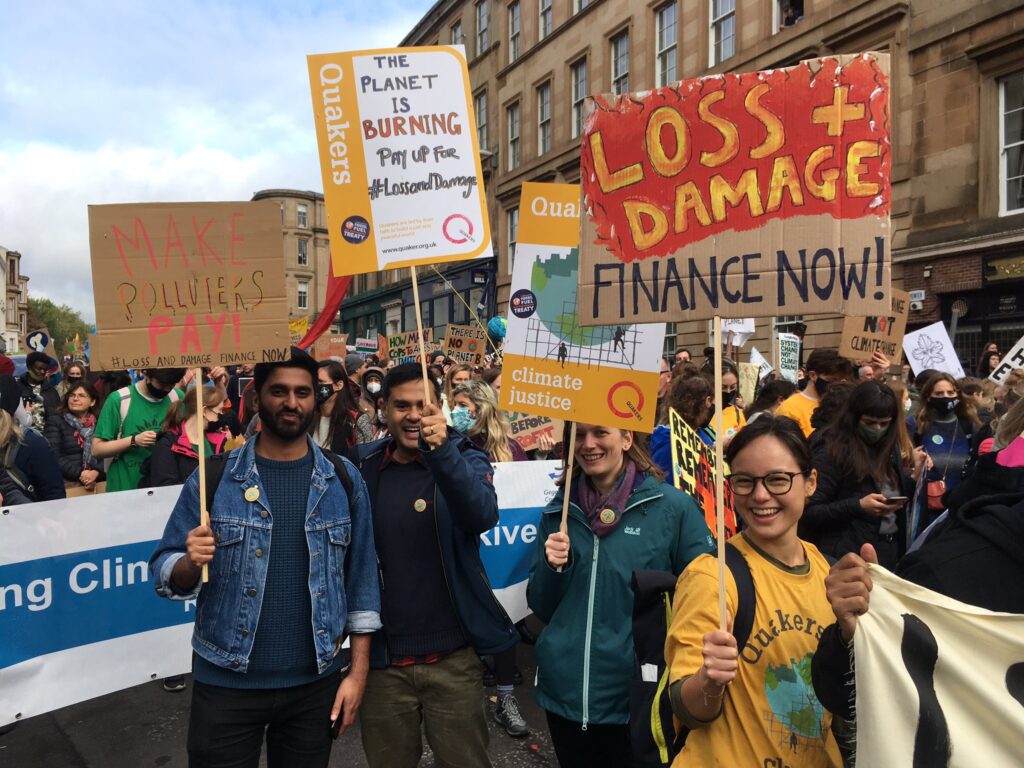
This achievement profoundly shaped our direction at Faith for the Climate. We realised that there was a need for a holistic yet focused approach to grow faith-inspired approaches to climate justice. First, because faith groups needed to understand climate justice better and, second, climate justice activists needed to appreciate the unique contributions of people of faith better. This is what led us to apply for – and win – a grant from the Joseph Rowntree Charitable Trust to design, develop and deliver our flagship Faiths for Climate Justice workshops.
Where next?
Our workshops have attracted Christians, Muslims, Jews, Buddhists, Hindus, Sikhs, and humanists. Through them, we have deepened existing relationships and forged new ones. This is why we had so many offers of help and participation when we came up with the idea of a family-friendly, faith-inspired picnic for climate justice ahead of the impending UK general election. This is why the picnic combined elements of joy and fun with a deep and concrete message on climate justice.
We hope that the workshops will create a multiplier effect and allow people of all faiths to uphold climate justice more confidently, and to forge more meaningful relationships between people of different faiths and beliefs in the climate and nature sector. This complements our work with individual faith leaders and representatives as well as our joint advocacy strategy led by the more well-resourced faith-based organisations in our network.
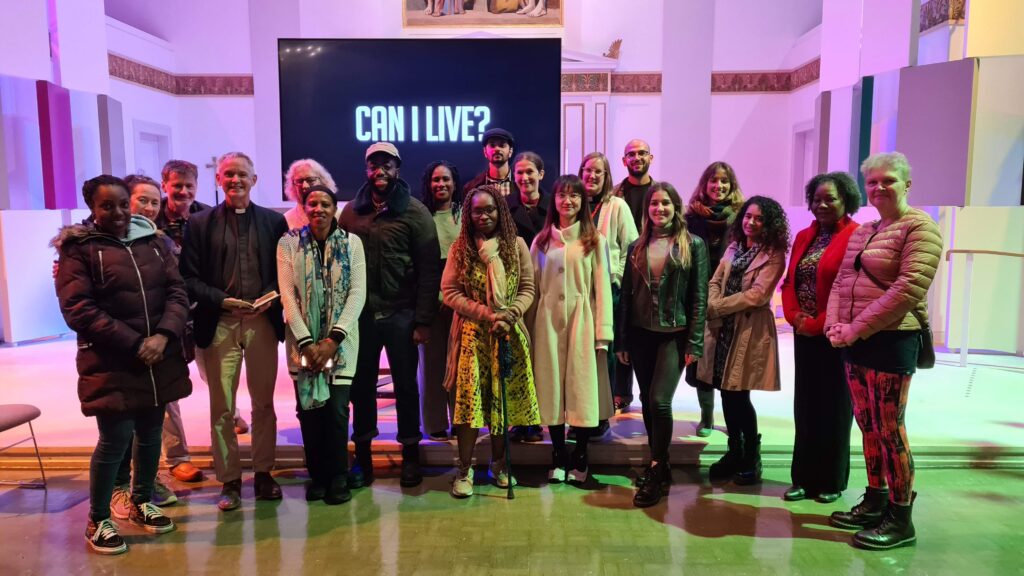
We’ve supplemented these workshops with other inspiring and unique offers that are rarely seen in traditional interfaith or environmental settings. One example is Exploring Spirit – our series of films, talks, performances and exhibitions celebrating UK Black History Month and Interfaith Week in 2023, joining the dots between faith, climate action, racial justice, economic justice, and gender justice.
Moving forward, we want to bring these workshops to more faith groups, especially those that remain under-represented in mainstream faith and environmental spaces. We want to build a community of faith-inspired climate justice champions who will be connected locally, regionally, and nationally in the UK. We want this network to work constructively with the formal leadership and representation of umbrella faith groups and environmental networks. We want to transform the landscape of social action in the UK such that climate and environmental justice are simply seen as an integral part of what it means to live in a healthy society.
Will you join us?
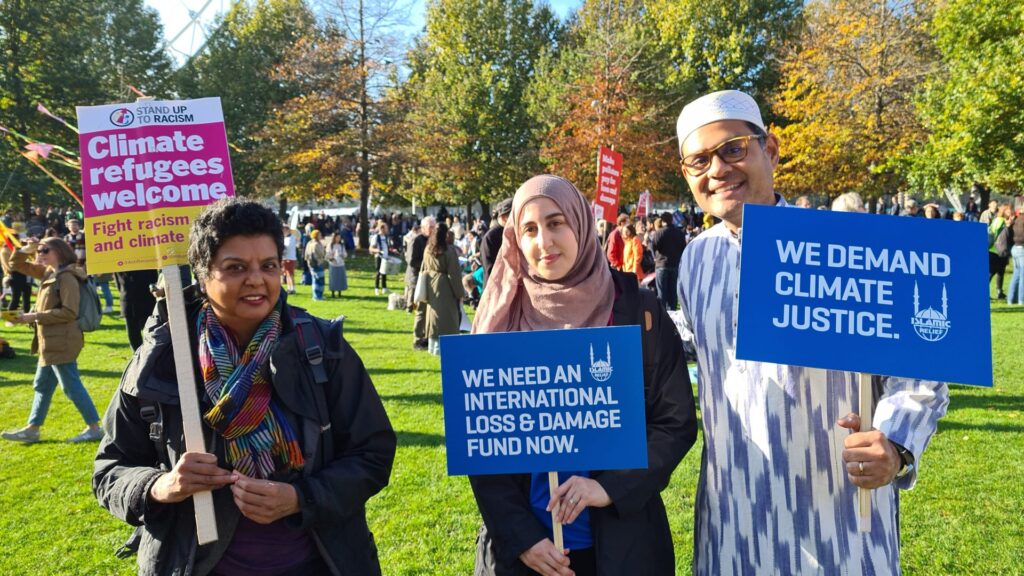
Dr Shanon Shah, Director, Faith for the Climate (last updated 10 Sept 2024)
